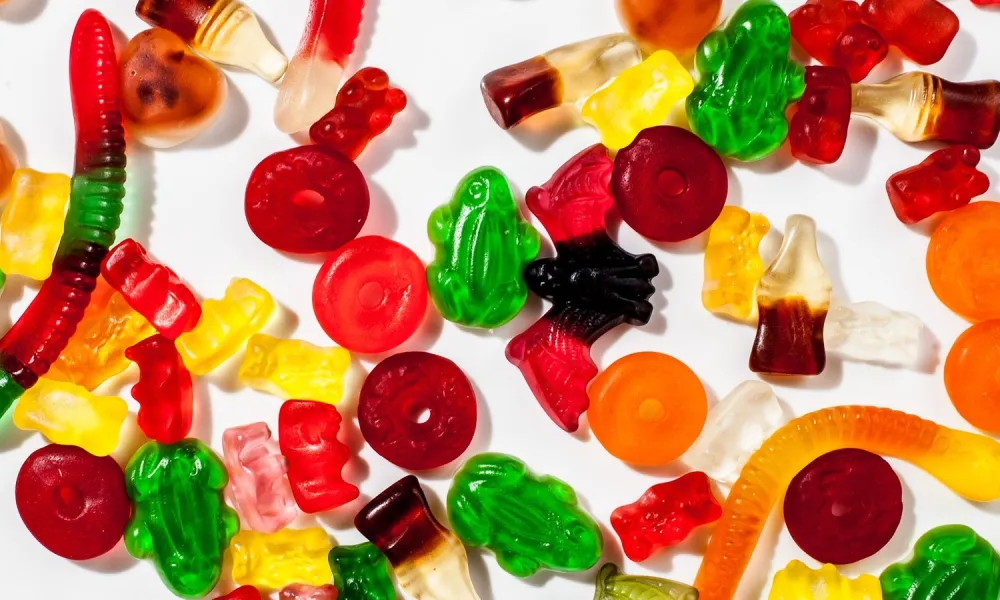Magic mushroom gummies- A new trend in psychedelic therapy

The active compound found in “magic mushrooms” garnered attention from researchers and clinicians alike. As the potential therapeutic benefits of psilocybin become more widely recognized, a new trend has emerged magic mushroom gummies. Psychedelic therapy, particularly using psilocybin, has shown promising results in treating various mental health conditions. Studies have demonstrated its potential efficacy in addressing depression, anxiety, addiction, and post-traumatic stress disorder (PTSD). The unique way psilocybin interacts with the brain’s serotonin receptors leads to profound shifts in perception, emotion, and cognition, often resulting in lasting positive changes in patients’ mental states.
What are magic mushroom gummies?
Magic mushroom gummies are edible candies infused with psilocybin extract. Unlike raw mushrooms, which have an unpleasant taste and texture, gummies offer a more palatable option for those seeking the potential benefits of psilocybin. These gummies are typically made by extracting psilocybin from mushrooms and incorporating it into a gelatin or pectin-based candy.
- Gummies are manufactured with specific amounts of psilocybin, allowing for more accurate dosing compared to eating whole mushrooms, where potency varies.
The extraction process used to create gummies results in a more consistent experience, as the active compounds are evenly distributed throughout the candy.
- Gummies are less conspicuous than whole mushrooms, making them a more discreet option for those undergoing therapy.
- Some individuals experience nausea when consuming whole mushrooms. Gummies may help mitigate this side effect.
Therapeutic potential of psilocybin gummies
The introduction of magic mushroom gummies into psychedelic therapy protocols could potentially enhance the therapeutic experience for patients. The ability to precisely control dosage is particularly important in clinical settings, where therapists aim to induce specific psychological states to facilitate healing.

- Depression treatment- Studies have shown that psilocybin rapidly reduces symptoms of depression, often after just one or two sessions. The controlled dosing offered by gummies could help optimize these treatments.
- Anxiety management-Psilocybin has demonstrated efficacy in reducing anxiety, particularly in patients facing life-threatening illnesses. Gummies could provide a less intimidating method of administration for anxious patients.
- Addiction recovery- Research suggests that psilocybin-assisted therapy may help individuals overcome addictions. The ritual of consuming a gummy could potentially replace harmful substance use behaviours.
- PTSD treatment- Early studies indicate that psilocybin may help alleviate symptoms of PTSD. The controlled nature of gummy consumption could be particularly beneficial for patients with trauma-related anxieties.
Future outlook and challenges
As research into psilocybin therapy continues to yield positive results, we’ll likely see increased interest in magic mushroom gummies as a delivery method.
- For magic mushroom gummies to be widely used in therapy, they would need to undergo rigorous testing and gain approval from regulatory bodies like the FDA.
- Developing consistent production methods and quality control measures will be essential to ensure the safety and efficacy of psilocybin gummies.
- Protocols must be developed to incorporate gummies into existing psychedelic-assisted therapy frameworks effectively.
- As magic mushroom gummies become more prevalent, there will be a need for comprehensive public education about their effects, potential benefits, and risks.
Their emergence highlights the ongoing shift in attitudes towards psychedelic substances and the growing recognition of their potential therapeutic value. While challenges remain, the development of magic mushroom gummies signals an exciting new chapter in the exploration of psychedelic medicine.



